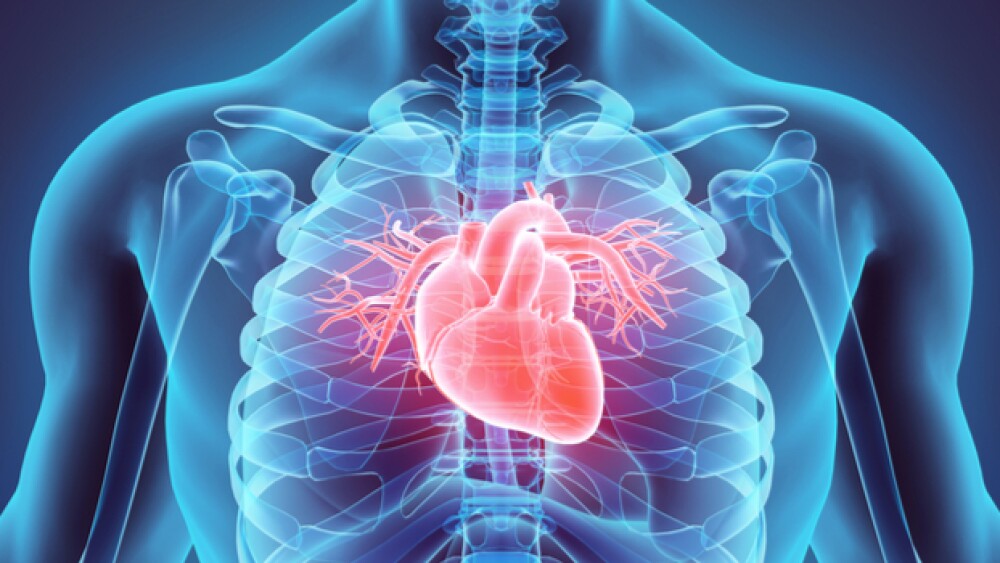As the American College of Cardiology (ACC) annual meeting opens in New Orleans this weekend, one of the big stories will undoubtedly be on the role of wrist sensors, such as the Apple Watch, in identifying heart rhythm problems. There will be other big stories, of course. Here’s a preview of just a couple.
As the American College of Cardiology annual meeting opens in New Orleans this weekend, one of the big stories will undoubtedly be on the role of wrist sensors, such as the Apple Watch, in identifying heart rhythm problems. There will be other big stories, of course. Here’s a preview of just a couple.
Apple-Sponsored Study
Stanford University researchers will kick off the meeting with a very large study of more than 400,000 patients in a study sponsored by Apple. They will present the results of whether the Apple Watch can accurately detect heart rhythm problems. Dubbed the Apple Heart Study, the trial had 419,297 participants, described as “a research study conducted to evaluate whether the Apple Heart Study App can use data collected on the Apple Watch to identify irregular heart rhythms, including those from potentially serious heart conditions such as atrial fibrillation.”
The patients participating wear the Apple Watch and are sent a notification if the smartwatch detected an irregular heartbeat. They were then followed up with an ECG for verification.
“I think this study is of considerable interest both to consumers who wear these devices but also physicians who are caring for these patients,” Pamela Morris, co-chair of the meeting and physician with the Medical University of South Carolina, Charleston, told TCTMD, publication of the Cardiovascular Research Forum (CRF). “We know atrial fibrillation is associated with an increased risk of stroke and other clotting events, but sometimes [the A-fib] is asymptomatic for patients, which is where these devices could come in, in recognizing rhythm disturbance.”
PARTNER 3 Trial and the Medtronic-Sponsored CoreValve or Evolut Trial
The Apple study will be followed by two sessions on Sunday focusing on TAVR low-risk trials, two COAPT analyses, and a TVT/STS registry analysis of balloon-expandable TAVR devices in bicuspid valve disease, reports TCTMD. One is results from the PARTNER 3 clinical trial, sponsored by Edwards Lifesciences. Data on the Sapien 3 device with surgery in about 1,300 patients at low risk for surgical aortic valve replacement, will be presented.
Right after that data is presented, there will be a presentation of data on a Medtronic-sponsored trial of 1,200 low-risk patients who received surgery or transcatheter replacement using the CoreValve or Evolut devices.
Interventional Cardiology Trials
On Monday, research will be presented, according to TCTMD, including “a comparison of femoral versus radial access for STEMI and two studies looking at single versus dual antiplatelet therapy following DES implantation (STOPDAPT-2 and SMART-CHOICE). COACT, meanwhile, is investigating the role of an early invasive strategy in post-cardiac arrest patients without STEMI, a group in whom the value of early angiography is uncertain.”
There will also be research presented on Sunday focusing on interventional studies, including data from DEFINE PCI, a blinded physiological analysis of residual ischemia after PCI, one-year data from the ADVANCE registry, evaluating the impact of FFRCT, and the MRUSMI first-in-man clinical trial on sonothrombolysis in STEMI patients undergoing PCI.
Low-Carb Diet Like Keto May Cause AFib
In what is likely to gather a lot of attention in the consumer media, research will be presented suggesting that low-carbohydrate diets, such as the Keto diet, may increase the risk of atrial fibrillation (AFib). People with AFib are five times more likely to have a stroke and are also at risk for heart attacks.
“The long-term effect of carbohydrate restriction is still controversial, especially with regard to its influence on cardiovascular disease,” stated Xiaodong Zhuang, a cardiologist at a hospital affiliated with National Sun Yat-Sen University in Guangzhou, China. “Considering the potential influence on arrhythmia, our study suggests this popular weight control method should be recommended cautiously.”
The study, which drew on data from the National Institutes of Health (NIH) that collected data over a decade, looked at 13,852 people, none of whom had AFib at the beginning. At the end of the study, 1,892 were diagnosed with AFib. Split into three groups with low, moderate and high carbohydrate diets, the study found that the low-carb group had the highest risk for developing AFib, 18 percent more than those who ate moderate carbs and 16 percent more than those in the high-intake group.
Those studies and many more will be presented at the meeting.





